International
Israel rejects accusations of genocide in Gaza war at ICJ hearing
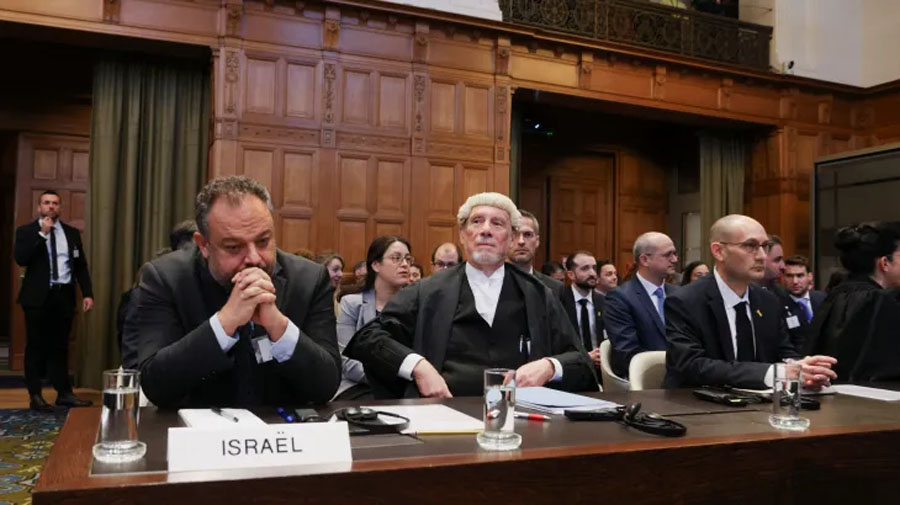
Israel rejects accusations of genocide in Gaza war at ICJ hearing
Israel has rejected the accusations brought by South Africa to the International Court of Justice (ICJ) that its actions in Gaza amount to genocide, in a second day of a public hearing at the world body in The Hague.
Israel’s legal representatives on Friday claimed South Africa’s case was “unfounded”, “absurd” and amounting to “libel”, and said Israel sought not to destroy a people but to protect its people.
On Thursday, on the first day of hearings, South Africa argued Israel had committed “systematic” acts of genocide in Gaza, where more than 23,500 Palestinians have been killed amid Israel’s military campaign, with at least 70 percent of whom were women and children, according to Gaza’s Health Ministry.
Israel’s arguments revolved around its “right to self-defence” following the attacks by Hamas on October 7, as well as what it called a lack of evidence of “genocidal intent”.
Christopher Staker, a lawyer representing Israel, said, “The inevitable fatalities and human suffering of any conflict is not of itself a pattern of conduct that plausibly shows genocidal intent.”
Malcolm Shaw, a professor of international law representing Israel, said the case relates only to charges of genocide, which “stands alone among violations of international law as the epitome of evil”. If the charge of genocide is levelled incorrectly, “the essence of this crime would be lost”, he said.
READ ALSO:
- Three men bag 22 years imprisonment for stealing household items
- C/River: Gov Otu floors Onor of PDP at S/Court
- Supreme Court dismisses PDP case against LP’ s Alex Otti as Abia governor
Shaw added that such evidence was lacking in the arguments South Africa presented a day earlier.
Detailing its evidence on Thursday, Tembeka Ngcukaitobi, a lawyer for South Africa, said, “The evidence of genocidal intent is not only chilling, it is also overwhelming and incontrovertible.”
‘Massive disconnect’
Israel’s legal representatives insisted its army has acted in compliance with international law in Gaza and aimed to mitigate civilian harm by warning of impending military actions, including via telephone calls and leafleting.
Omri Sender, another lawyer, argued that Israel’s efforts to facilitate humanitarian assistance to people in Gaza testified to its objective of protecting the civilian population, rather than destroying it.
However, Thomas MacManus, a senior lecturer in state crime at Queen Mary University of London, told Al Jazeera the ICJ is likely to see a “massive disconnect” between the picture Israel painted of its humanitarian concern for Gaza and “the reality on the ground where UN agencies say people are starving, lacking water, and seeing attacks on hospitals, schools, and universities”.
Speaking before the ICJ hearing, Galit Raguan, acting director of the international justice division at Israel’s Ministry of Justice, refuted the claim that Israel had bombed hospitals. She argued Israel had found evidence of Hamas using “every single hospital in Gaza” for military purposes.
Responding to claims that hospitals were used as military bases, Palestinian foreign ministry official Ammar Hijazi told Al Jazeera outside The Hague that Israel’s arguments were not based in fact or law.
“What Israel has provided today are many of the already debunked lies,” he said.
‘Plausible right to self-defence’
The ICJ is set to rule on nine provisional measures effectively seeking the suspension of military operations in Gaza, but a timeline for when that will happen has not been stated. Israel has argued the provisional measures cannot require a state to refrain from exercising a “plausible right to defend itself”.
READ ALSO:
- Supreme Court overrules A’court, upholds Mutfwang as Plateau governor
- Kano gov: NNPP Abba Yusuf wins at Supreme Court
- Supreme Court overrules A’court, upholds Mutfwang as Plateau governor
On the issue of jurisdiction, Israel argued that one of the requirements of the ICJ’s mandate is that the state putting forward the case should try to sort out this problem first. According to Israel, they did not manage to talk to South Africa before they brought this case to the court. In turn, South Africa argued it had reached out to Israel but obtained no response.
The Israeli team did make strong “jurisdictional and procedural arguments”, Al Jazeera’s senior political analyst Marwan Bishara said, but he added that “Israel lost the moral, factual, historical and humanitarian argument because of the way the situation has unravelled in Gaza – with the sheer death and industrial killing there.”
Tal Becker, the legal adviser of Israel’s foreign ministry, told the ICJ hearing that South Africa enjoyed close relations with Hamas and was therefore attempting to put forward a “distorted factual and legal picture”.
South Africa “firmly rejects” that claim, Al Jazeera’s Fahmida Miller said, reporting from South Africa.
“The South African government has said that it doesn’t have bilateral relations with Hamas and that its stance in terms of supporting the Palestinian struggle against occupation does not equate to the support of Hamas,” she said.
In its presentation on Thursday, South Africa’s lawyers also condemned Hamas’s actions on October 7.
ICJ President Joan Donoghue ended the two-day hearing saying the court will announce its decision in the coming days.
Israel rejects accusations of genocide in Gaza war at ICJ hearing
SOURCE: AL JAZEERA
International
Canada plans to cut foreign student visas
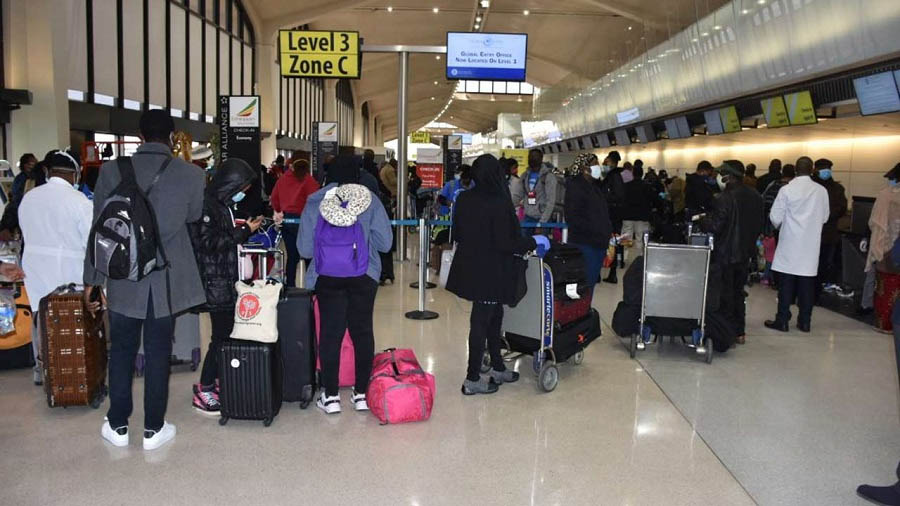
Canada plans to cut foreign student visas
The Canadian government, led by Prime Minister Justin Trudeau, is set to implement new immigration restrictions beginning next year.
According to The Economic Times, these measures will reduce the intake of international students and impose stricter rules on foreign workers.
During a press briefing in Ottawa, Immigration Minister Marc Miller announced that Canada will slash international student permits by 10% for 2025 compared to current levels, continuing this reduction through 2026. This move represents a 36% decrease from the figures reported in 2023.
Universities Canada has noted that the country is already missing this year’s targets due to a drop in applications from foreign students.
READ ALSO:
- Edo poll: Court gives fresh order on APC candidate Okpebholo
- JUST IN: Edo declares Friday work-free day for gov election
- Ganduje not plotting to dethrone any Kano Emir – Aide
The new regulations are intended to manage the rapid increase in the temporary resident population, which includes international students, temporary workers, and asylum seekers. This surge, which has accelerated since the pandemic, has led to increased criticism of Trudeau’s immigration policies.
Miller emphasized the necessity for a sustainable immigration system, stating, “The reality is that not everyone who wants to come to Canada will be able to — just like not everyone who wants to stay in Canada will be able to. Our immigration system must preserve its integrity and be well-managed and sustainable.”
Initially, strong immigration was beneficial for Canada’s post-pandemic recovery and helped buffer the impact of high interest rates on economic growth.
However, the recent population increase—adding about three million people in three years—has strained housing and public services, affecting Trudeau’s popularity. In March, the government aimed to reduce the proportion of temporary residents to 5% within three years, down from 6.2% at that time. This proportion has now risen to approximately 6.8%.
Canada plans to cut foreign student visas
International
American govt approves Elon Musk’s Neuralink brain chip to restore vision

American govt approves Elon Musk’s Neuralink brain chip to restore vision
Tesla CEO Elon Musk has announced that Neuralink, his brain-chip startup company, has received approval from the US Food and Drug Administration (FDA) for an experimental implant device that will “enable even those who have lost both eyes and their optic nerve to see”.
“The Blindsight device from Neuralink will enable even those who have lost both eyes and their optic nerve to see. Provided the visual cortex is intact, it will even enable those who have been blind from birth to see for the first time,” the tech billionaire tweeted early Wednesday.
In the tweet on X (formerly Twitter), Musk posted a photo of Geordi La Forge, a character from the sci-fi TV series Star Trek, who is blind from birth but uses different technological devices that allows him to see.
“To set expectations correctly, the vision will first be at low resolution, like Atari graphics, but eventually it has the potential to be better than natural vision and enable you to see in infrared, ultraviolet, or even radar wavelengths, like Geordi La Forge”.
READ ALSO:
- Man remanded for allegedly defiling stepdaughter in Benue
- Tinubu govt inherited hardship from Buhari administration – Emir
- Edo poll: Set back for PDP as ex-deputy speaker dumps party
Co-founded by Elon Musk in 2016, Neuralink specialises in developing innovative brain-computer interfaces to transform treatments for neurological disorders.
Neuralink’s technology includes a brain implant that reads neural signals and wirelessly transmits them to external devices, including computers and mobile devices.
Business World reported that Neuralink is also developing an implant that enables paralysed individuals to control digital devices with their thoughts.
Neuralink is also reported to be conducting a clinical trial with three participants to evaluate the device’s effectiveness in aiding individuals with spinal cord injuries.
In August 2024, it was widely reported that Neuralink successfully implanted its brain-computer interface in a second patient, who is now able to control video games and create 3D designs using just their thoughts.
American govt approves Elon Musk’s Neuralink brain chip to restore vision
International
Major US labour union declines to endorse Harris, Trump
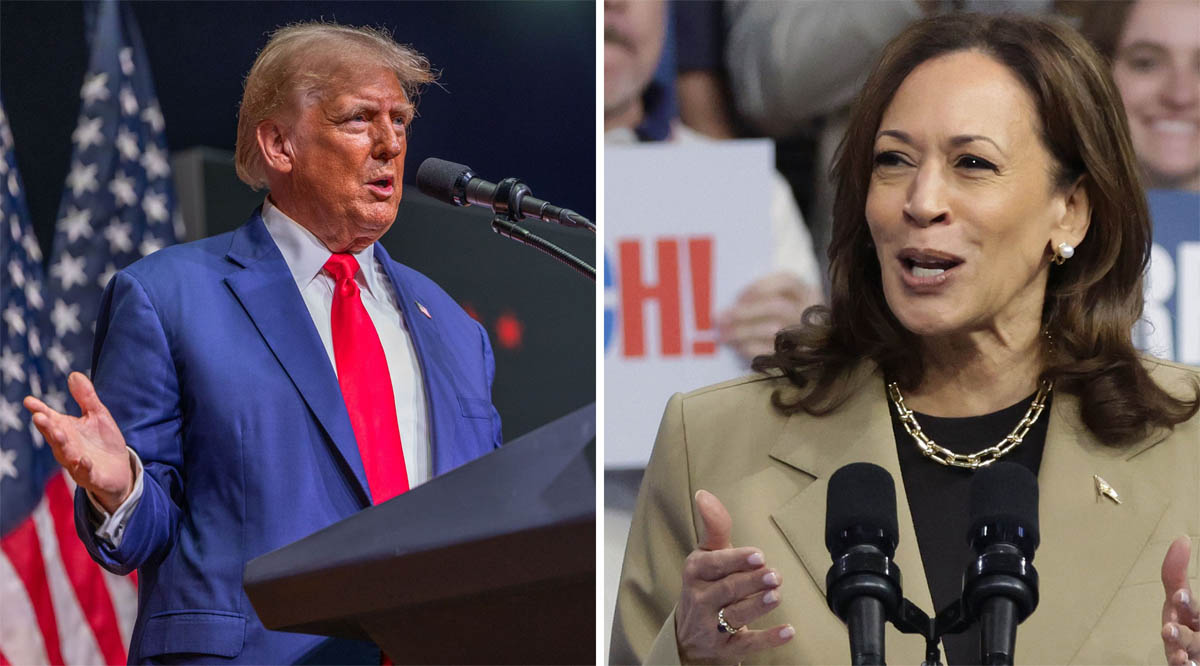
Major US labour union declines to endorse Harris, Trump
One of America’s most influential labour unions, the International Brotherhood of Teamsters, has declined to issue a US presidential endorsement for the first time since 1996.
The union, which boasts some 1.3 million members across the US and Canada, said it had received “few commitments on top Teamsters issues” from either Democratic nominee Kamala Harris or Republican nominee Donald Trump.
It also claimed that polling of its rank-and-file members found “no definitive support” for either candidate, though two of its recent polls indicated lopsided support for Trump.
The move is a major blow to the Harris campaign’s efforts to win over working-class voters with less than 50 days before election night.
An endorsement had the potential to mobilise thousands of Teamsters who live, work and vote in the crucial battleground states of Pennsylvania, Michigan and Wisconsin.
Shortly after the announcement, some Teamsters regional councils representing more than half a million members in Michigan, Wisconsin, Nevada and California, said they would be endorsing Harris.
In a statement, the Harris campaign touted its support from “the overwhelming majority of organised labour” and noted that many Teamsters locals have gotten behind her candidacy.
“While Donald Trump says striking workers should be fired, Vice-President Harris has literally walked the picket line and stood strong with organized labour for her entire career,” campaign spokesperson Lauren Hitt said.
The union’s rank-and-file – a coalition of members that includes freight drivers, warehouse workers and airline pilots – has long been considered politically diverse.
READ ALSO:
- 20 killed, 450 injured in second wave of blasts in Lebanon
- FG mutes new system against fraud, to enhance identity verification
- Fresh trouble over supply volume in Dangote refinery petrol
General President Sean O’Brien has sought to build inroads with Republicans since he took over leadership of the executive board in 2022.
He has reached out to more populist figures within the party, such as US senators Josh Hawley of Missouri and JD Vance of Ohio, who is now Trump’s running mate.
Mr O’Brien also met privately with Trump at his Mar-a-Lago estate in January, shortly before the former president attended a roundtable with the union’s board at its headquarters in Washington DC.
Following that meeting, Trump said he believed he had a “good shot” at receiving the union’s endorsement.
The board also met with President Joe Biden before he stepped aside as the Democratic nominee, as well as third-party candidates Robert F Kennedy Jr and Cornel West.
But the union alarmed Democrats when it made its first financial contribution to their opponents in years, donating $45,000 (£34,000) – the maximum allowed contribution – each to both the Democratic and Republican National Conventions in February.
Mr O’Brien also became the first Teamsters boss ever to address the Republican National Convention (RNC).
Invited to deliver a prime-time address at the event in Milwaukee, the union head praised Trump as “one tough SOB” but declined to endorse him.
He also later criticised Trump and top campaign surrogate and billionaire businessman Elon Musk over comments in which the two discussed firing workers who threaten to go on strike.
After his decision to speak at the RNC, Mr O’Brien did not receive an invitation from Democrats to address their party convention last month.
READ ALSO:
- School teachers begin indefinite strike in Abuja
- Police parade suspected ritualists, armed robbers in Osun
- Students can reapply for loans, we’ve resolved BVN verification glitch – NELFUND
The party instead invited rank-and-file members to represent the organisation and to speak from the convention stage.
Some members of the Teamsters have expressed anger with Mr O’Brien over his right-wing outreach.
Last month, the Teamsters National Black Caucus and six union locals defied national leadership by endorsing Harris on their own and urging members to get behind her.
On Monday, Harris met with the Teamsters board in a long-delayed roundtable that lasted an hour and a half.
A New York Times report described the sit-down as “sometimes tense”, but a Teamsters spokesperson disputed this characterisation when asked by the BBC.
During their meeting, the Times added, Harris told Teamsters leaders: “I’m confident I’m going to win this. I want your endorsement, but if I don’t get it, I will treat you exactly as if I had gotten your endorsement.”
Speaking to reporters after Harris had made her pitch, Mr O’Brien noted that “there wasn’t a whole lot of difference” between the answers she and her predecessor, Biden, had provided.
Biden has routinely touted himself as “the most pro-labour president ever”, pointing to policies that have made it easier for US workers to organise and that have prioritised union labour for federal government projects.
Last September, he made history as the first US president to walk a picket line, when he joined the United Autoworkers in Michigan in a strike against the Big Three US auto companies: General Motors, Ford and Stellantis.
The Biden administration also shored up the Teamsters pension fund to the tune of $36bn, which it says prevented cuts to the retirement incomes of over 600,000 members.
Mr O’Brien and other leaders have also acknowledged on several occasions that Biden has been “great for unions”.
But before he dropped out in July, some reports suggested that the Teamsters did not plan to endorse Biden’s bid for re-election.
Correction: An earlier version of this story was updated to reflect that the Teamsters are the fourth largest, not the largest, US union.
On Wednesday, ahead of its announcement that it would not endorse Harris or Trump, the union released polling data for its members.
In an electronic poll conducted after the RNC, rank-and-file Teamsters voted 59.6% for the union to endorse Trump compared to 34% for Harris.
A separate poll, commissioned in the past week, found Teamsters again backing Trump by a lopsided margin – 58% to 31%.
In spite of those results, the union said in a statement that its “extensive member polling showed no majority support for Vice President Harris and no universal support among the membership for President Trump”.
The Trump campaign quickly lauded the poll numbers on Wednesday.
“While the Teamsters Executive Board is making no formal endorsement, the hardworking members of the Teamsters have been loud and clear – they want President Trump back in the White House,” campaign press secretary Karoline Leavitt said.
Major US labour union declines to endorse Harris, Trump
BBC
-

 Business3 days ago
Business3 days agoDangote refinery to transport 75% of fuel locally by sea
-

 metro2 days ago
metro2 days agoFour burnt to death, eight others injured in Ore-Ijebu Ode road crash
-
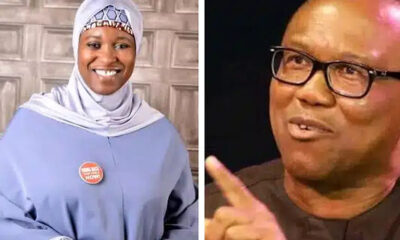
 Politics3 days ago
Politics3 days agoWhy I’ll work against Obi as running mate – Aisha Yesufu
-

 metro2 days ago
metro2 days agoUpdated: Controversial church testimony occurred in a dream, says Lord’s Chosen
-

 metro2 days ago
metro2 days agoLady laces food with laxatives to know those eating it
-

 Opinion1 day ago
Opinion1 day agoOgun Waterside: Path to political recovery
-
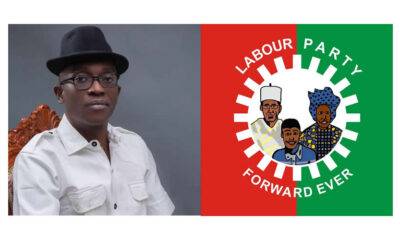
 Politics3 days ago
Politics3 days agoWe no longer recognise Abure as Labour Party chairman – INEC
-
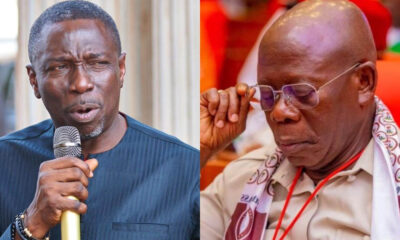
 News3 days ago
News3 days agoIghodalo sues Oshiomhole for N20bn ahead of Edo election













